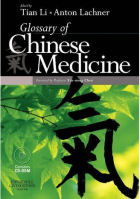Acupuncture & TCM Articles
Acu-therapy: What is It?
Author: CarolAnn Bailey-Lloyd
Acu-Therapy (also known as acutherapy) is similar to acupuncture without needles. Using psychology rather than pin pricks, Acu-Therapy balances the body's energy core by gentle finger taps or electrical impulses upon key locations of the body. Like acupressure and acupuncture, Acu-Therapy is safe and effective for a variety of chronic health conditions and disorders like headaches, sinus problems, musculoskeletal pain, stress and tension, among others.
Acu-therapy is a natural healing art that is used to restore harmonic balance within the body and helps achieve and maintain overall well-being. Because it improves circulation, acu-therapy is excellent for the lymphatic system, stress reduction and achieving full-body relaxation. While it reduces stress, acu-therapy improves the immune system's natural resistance; thus, promoting total wellness. Focusing primarily on pain relief, acu-therapy is a superb technique for pain and disease prevention.
As a post-graduate program, interested individuals can take advanced or continuing education courses in acu-therapy, where they can earn certification. In this field of study, students are taught the various aspects of the healing art; sometimes including specialized training in electro-acutherapy.
Where can you learn acu-therapy? In some cases, acu-therapy is taught at acupuncture schools, Oriental medicine institutes, TCM (Traditional Chinese Medicine) colleges, and other alternative medicine universities. In addition, a number of holistic workshops and seminars (that teach acu-therapy) may be available as well. Depending on the nature of the program, some acu-therapy courses may require that students have already met certain educational curriculums in acupuncture and Oriental medicine, while others ask that students have a basic concept and knowledge of anatomy and physiology. In general, it is always a good idea to review prerequisites prior to applying to any academic course.
If you (or someone you know) are interested in finding acu-therapy courses, let professional training within fast-growing industries like massage therapy, cosmetology, acupuncture, oriental medicine, Reiki, and others get you started! Explore career school programs near you.
Copyright 2007 www.holisticjunction.com
  Glossary of Chinese Medicine Glossary of Chinese Medicine
~ Li Tian
Anyone who learns the skills of acupuncture or who extends his knowledge of TCM is inevitably confronted with terms which hitherto had always meant something different to him or her. Take the use of the word 'wind', for example, to refer to a pathogenic factor contributing to illnesses - rather than its sense as a climatic factor. This difficulty is compounded by the fact that, in most books, these terms are not used in a clear and uniform way. One of the many examples is the Chinese term 'xu' which is translated as 'insufficiency' but also as 'deficiency' or 'severity' and is often not even used consistently within one and the same publication. This glossary presents all the Chinese terms (in Chinese characters and in Pinyin script) that are relevant to TCM and provides their English translations. It also provides an explanation of how, for example, the location or the function of an acupuncture point can be concluded from its name.
A CD-ROM with recordings of the authors speaking all the presented Pinyin terms in Chinese is included with this book to enable the reader to acquire the correct pronunciation.
|
